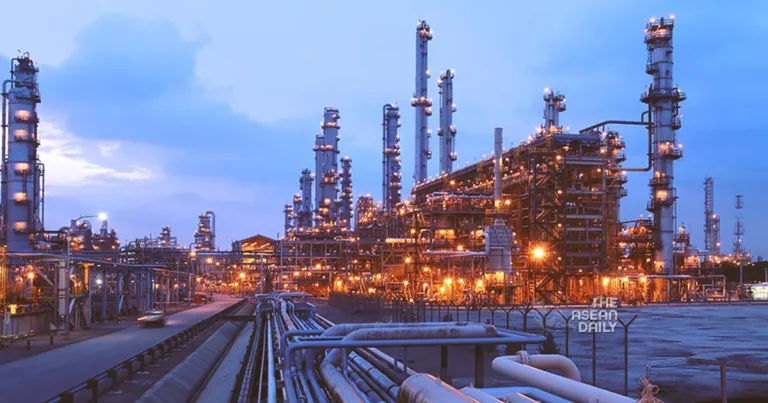14-6-2024 (SINGAPORE) In a bid to cushion the impact of its ambitious decarbonization efforts on the refining and petrochemical sectors, Singapore is offering significant rebates on its planned carbon tax hike for 2024 and 2025. According to sources familiar with the matter, companies in these emissions-intensive industries could receive rebates of up to 76 percent, providing much-needed relief and ensuring their competitiveness against rivals worldwide.
The tax concessions come as a welcome respite for refiners grappling with mounting cost pressures and intense competition from newer facilities in China and the Middle East. Estimates from consulting firms FGE and Wood Mackenzie suggest that carbon tax costs could range between 80 cents and $1 per barrel of crude input for refineries, based on the $25 per tonne of emission rate. This figure represents a substantial portion of Singapore refiners’ current profit margins, underscoring the urgency for mitigation measures.
Under Singapore’s revised carbon taxation scheme, which took effect on January 1st, businesses emitting more than 25,000 tonnes of carbon annually are now subject to a $25 per tonne levy until 2025, a significant increase from the previous $5 per tonne rate in effect from 2019 to 2023. The rate is expected to escalate further, reaching $45 per tonne in 2026 and 2027, and eventually ranging between $50 and $80 per tonne by 2030, as announced by the Singapore Government in 2022.
To alleviate the burden on major players in the refining and downstream sectors, the authorities have granted substantial rebates on a transitional basis, effectively reducing the final costs to between $6 and $10 per tonne of emissions, according to three sources privy to the details. However, companies will still be required to pay the full $25 per tonne of carbon emission tax upfront and subsequently apply for the rebates, adhering to the terms and conditions set forth by the government, a fifth source revealed.
Singapore’s refining landscape is dominated by three major players – Shell, ExxonMobil, and Singapore Refining Company (SRC), a joint venture between Chevron and Singapore Petroleum Co, owned by PetroChina – with a combined capacity of 1.119 million barrels per day. While the disruption of Russian oil trade amid the Ukraine war and post-pandemic demand boosted refining margins between 2020 and 2022, these profits have halved from their peak levels reached in February.
When approached for comment, Shell declined to provide a statement, while an ExxonMobil spokesperson said: “As a matter of practice, we do not discuss confidential matters.” Meanwhile, an SRC spokesperson affirmed the company’s commitment, stating, “The Singapore Refining Company remains committed to support the Singapore Government’s policies through close partnership and continued dialogue.”
According to one source, the concessions are likely to remain in place for at least 2024 and 2025, with the “discounted” rate subject to further discussions in 2026 or later. This transition period aligns with Singapore’s broader framework introduced in 2023 to support companies in emissions-intensive trade-exposed sectors, such as chemicals, electronics, and biomedical manufacturing, as they navigate the energy transition.
A spokesperson for the Ministry of Trade and Industry clarified that “the allowances will only be provided for a proportion of the companies’ emissions, and are based on internationally recognised efficiency benchmarks where available, or the ambition and robustness of companies’ decarbonisation plans.” The spokesperson added, “Their remaining emissions will continue to be subject to the prevailing headline carbon tax rates.”
The duration of this transition framework will depend on the development of international carbon prices and the progress of decarbonization technologies, with companies receiving sufficient notice in advance of any changes to facilitate business planning.
In addition to the rebates, companies currently have the option to offset up to 5 percent of their taxable emissions using international carbon credits – either purchased or accumulated elsewhere globally, according to the National Environment Agency (NEA).
The significant increase in carbon taxes has been a subject of intense debate within Singapore’s refining sector, particularly following the sale of Shell’s flagship Bukom and Jurong Island refinery and petrochemical facilities amid fierce competition. As the nation forges ahead with its ambitious climate goals, striking a balance between environmental imperatives and preserving the competitiveness of key industries remains a delicate balancing act.




